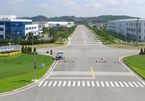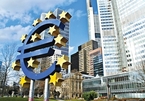 |
|
The enforcement of the EVFTA will spur on new investment from European nations
|
Magdalena Krakowiak, head of Public Affairs & CSR at Poland’s pharmaceutical firm Adamed RO Vietnam is upbeat about the European Parliament’s recent approval of the deals. In 2017, Adamed Group spent $50 million acquiring a controlling stake in Davipharm Co., Ltd., to capitalise on Vietnam’s fastest-growing pharmaceutical. Davipharm manufactures 300 medicinal products in most therapeutic classes.
For Adamed and the whole pharmaceutical industry, the move means that Vietnamese consumers have privileged access to European medicines.
Likewise, EU drugs producers will have greater access to Vietnam’s fast-growing market.
With the EVFTA in effect, about half of EU pharmaceutical imports will be duty free immediately, with the rest exempt from duty after seven years.
“Vietnam’s pharmaceutical market still only meets 52 per cent of the market demand contributed mostly by generic drugs,” said Krakowiak.
“The new FTA will bring fair and equal access to the market, enabling EU investors to further expand their business and thus allowing foreign investors to meet the strong growth of the pharmaceutical sector.”
According to Krakowiak, it also aligns some standards and puts pressure on speeding up lengthy processes.
For example, if the approval process of the medicine (the granting of a marketing authorisation) takes more than 24 months, there will be an extension to patent protection of up to two years.
Another very important change for the industry is regulatory data protection to pharmaceutical products for five years.
The EVFTA also includes vital provisions on environmental protection and labour rights, which are fundamental for Adamed as a socially responsible company.
“However, the recent vote is not the end of the process. Now smooth implementation is needed so that companies and consumers on both sides can unlock the full potential of this agreement,” said Krakowiak.
In another case, Nguyen Chi Thanh, deputy general director of French garment firm Scavi JSC, said that the company is expected to gain a competitive edge from the EVFTA.
Scavi is working with 20 European companies, making up two thirds of its total partners and customers.
Exports to the EU currently account for over 55 per cent of the group’s total revenue. Currently, Scavi has five factories in Vietnam and one in Laos.
However, Scavi’s export products to the EU are subject to high tariffs of 8-12 per cent, depending on each product type.
Under the trade agreement, the EU will eliminate duties for some sensitive products in the textile sector over a five-year period, which will bring more benefits to manufacturers like Scavi.
Thanh added that Scavi has stepped up its game to boost export products to the EU market and compete with its rivalries there.
The company is expected to gain a competitive edge with an EVFTA roadmap to reduce 20 per cent tariffs each year after the deal takes effect.
The company will raise investment to improve product quality as well as create added value for partners and customers to capitalise on new opportunities arising from the trade agreement.
The EVFTA will allow Vietnam to import fabrics from South Korea. This will open up more choice and create favourable conditions for Scavi to source new materials as well as ramp up manufacturing and exports to the EU.
According to a study by the European Chamber of Commerce in Vietnam (EuroCham), 80 per cent of 130 European businesses surveyed believed the EVFTA will have either a ‘significant’ or ‘moderate’ impact on their business in the medium term.
Meanwhile, over 80 per cent believed the deal will make Vietnam more competitive, while 72 per cent said it will help the country to become a hub for European business in the ASEAN region.
Meanwhile, 80 per cent also said the EVFTA will improve Vietnam’s competitiveness compared to other countries such as China, Japan and South Korea.
According to Vietnam’s General Statistics Office, bilateral trade between Vietnam and the EU last year hit $56.5 billion in 2018, with $41.7 billion of that comprised of Vietnamese exports to Europe, and $14.8 billion of European exports to Vietnam.
Under statistics from Vietnam’s Ministry of Planning and Investment, investors from 23 out of 27 EU member states have registered around $24 billion into more than 2,200 projects over the past 28 years.
“The EVFTA will raise investment from the EU across all sectors and industries, as the gradual elimination of tariffs and barriers to trade will open up Vietnam’s markets and make it more attractive to investors from the EU,” said the EuroCham’s chairman Nicolas Audier.
“Of particular interest will be the country’s service sector and government procurement since, in the EVFTA, Vietnam has gone over and above the World Trade Organization baseline and opened up additional sectors for investment.” VIR
Thanh Van

How EVFTA, coronavirus affects Vietnam industrial property?
The coronavirus outbreak will certainly have an effect on the global economy in the coming months. Vietnam, with its proximity and close trade and supply relationships with China, is no exception.

EVFTA lends newfound vigour to banking sector
The ratified EU-Vietnam Free Trade Agreement is expected to bring a historic change in the Vietnamese banking sector, but also sets sizeable challenges for both foreign and local lenders before they can receive good returns on investment.
 European companies are eager to grasp new business and investment opportunities from the EU-Vietnam Free Trade Agreement and the EU-Vietnam Investment Protection Agreement.
European companies are eager to grasp new business and investment opportunities from the EU-Vietnam Free Trade Agreement and the EU-Vietnam Investment Protection Agreement.